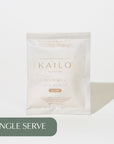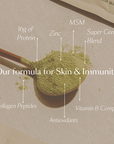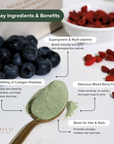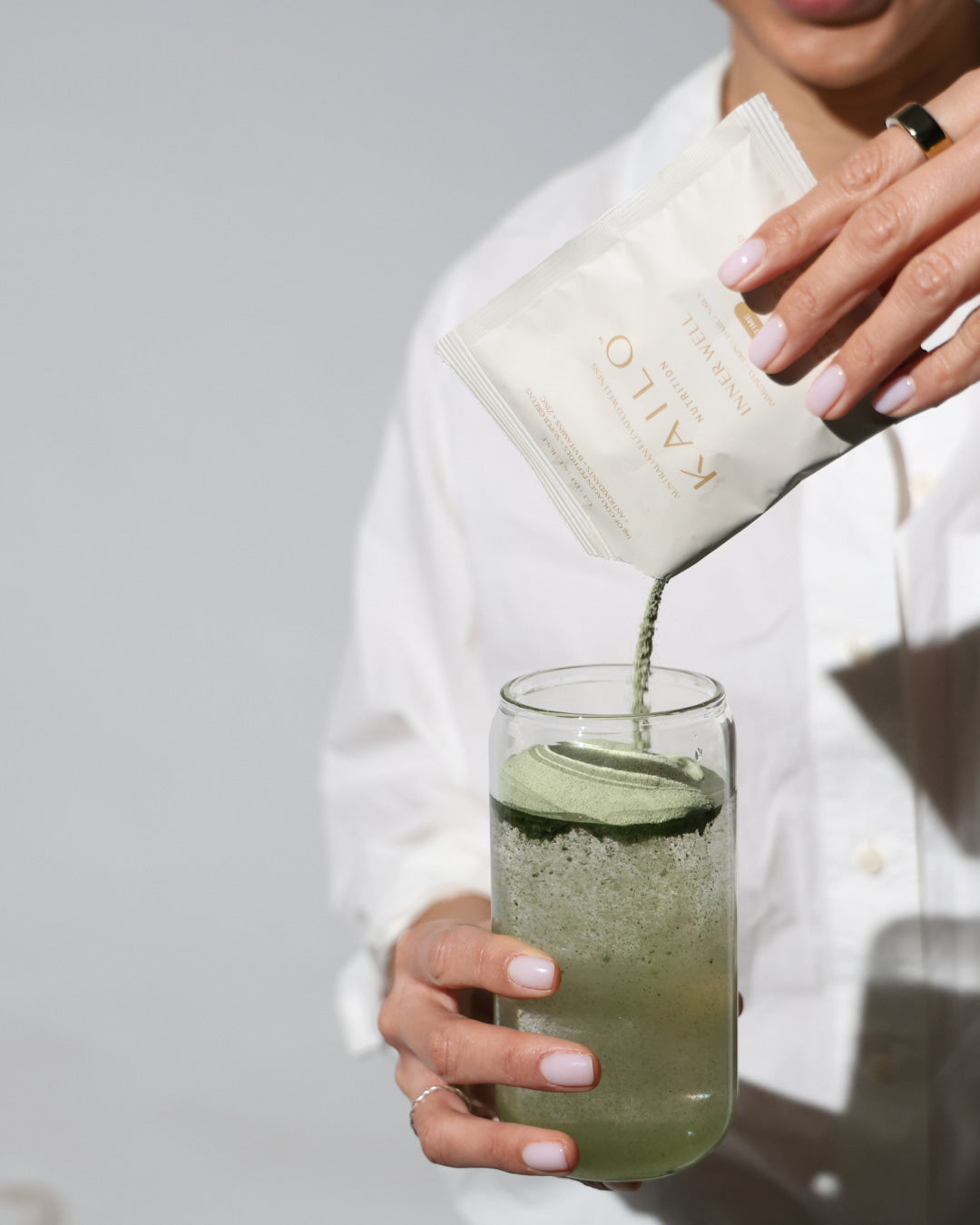




Look Well (Skin & Immunity Collagen Blend) - Mixed Berry 25g single serve
We invite you to try our Look Well Mixed Berry blend, in our easy-to-use single serve sachet.
Look Well is a 6-in-1 supplement that targets cellular renewal, immunity & digestion and supports overall wellness & vitality through the inclusion of a number of different well-researched vitamins, minerals, and antioxidants. Look Well, formulated to target the hair, skin, nails and immune system, is an overall Hero Product with endless health benefits.
Skin tightening
Pro ageing
Improves immunity
Why We Love: Look Well





